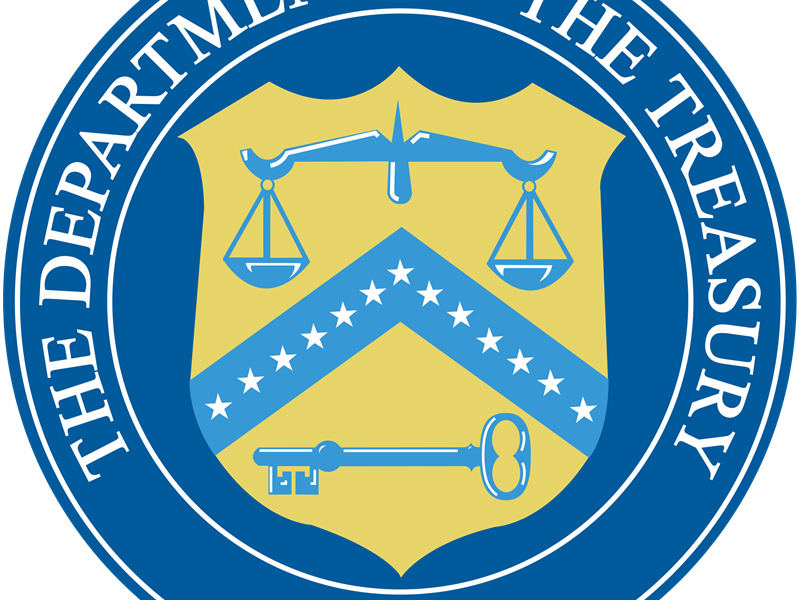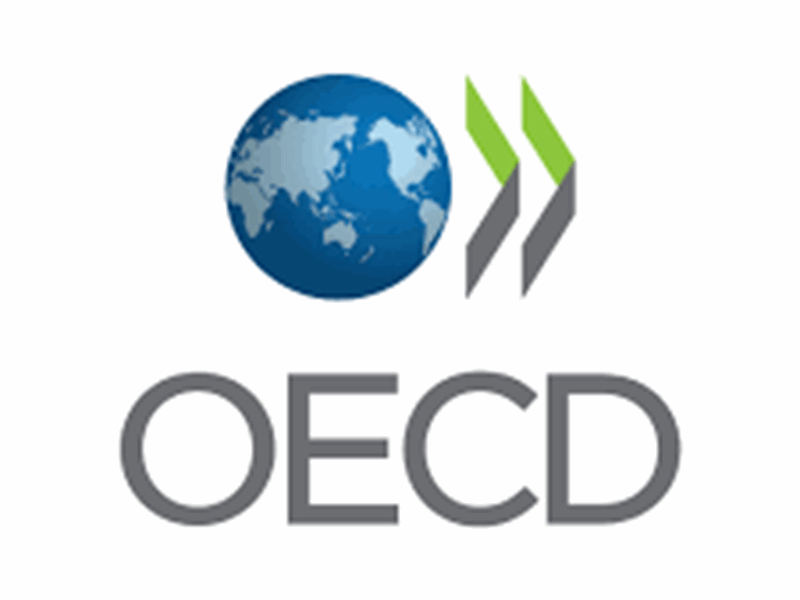Int'l Tax News
Posted on
Treasury Secures Agreement to Exempt U.S.-Headquartered Companies from Biden Global Tax Plan

The Treasury Department announced an agreement with OECD Inclusive Framework members confirming that certain U.S.-headquartered multinational groups will be exempt from key elements of the Pillar Two global minimum tax regime. The announcement reflects ongoing efforts to align the Pillar Two framework with existing U.S. tax rules, including the treatment of GILTI. Treasury emphasized that the agreement preserves U.S. taxing rights while reducing the risk of double taxation for U.S. multinationals operating abroad. The development has important implications for the future interaction between U.S. international tax law and the OECD’s global minimum tax project.
To read the full article, click here.
Posted on
International community agrees way forward on global minimum tax package

This press release announces that the 147 members of the OECD/G20 Inclusive Framework have agreed on key elements of a package advancing the coordinated operation of the global minimum tax, which includes the side-by-side approach reflected in the Tax Notes article
To read the full article, click here.
Posted on
Business Cheers OECD Deal on ‘Side-by-Side’ Global Tax System (1)

US business groups and lawmakers welcomed an agreement reached by over 140 countries at the OECD that would exempt American companies from major parts of the global minimum tax framework.
Posted on
Countries Carve Out US Business From Global Minimum Tax (3)

The Trump administration notched a major win for US companies, securing a commitment from international negotiators at the OECD to exempt them from key provisions of the global minimum tax.
Posted on
Why US Tariffs Failed to Dent Global Trade

Last year was supposed to mark the moment international trade was dismantled. President Donald Trump’s tariffs, we were told, were so unprecedented in scale and ambition that they might stop globalization in its tracks.
Posted on
The Impact of the G7’s Pillar 2 Statement on U.S.-Parented Multinational Groups

This article evaluates how the G7’s Pillar Two statement could affect the application of minimum tax rules to U.S.-parented multinational enterprises
To read the full article, click here (subscription required).
Posted on
Transfer Pricing a Top UN Concern but Nations Split Over Fixes

Countries at the United Nations are looking at sweeping changes to transfer pricing rules as they design a tax treaty acceptable to developing economies. But easing access to transfer pricing information could emerge as a more realistic outcome.
Posted on
Irish Finance Department Summarizes Budget 2026 Tax Measures

Summarizes Ireland’s 2026 budget tax measures, including extensions of credits and reliefs affecting individuals and businesses.
To read the full article, click here (subscription required).
Posted on
Simplification and Soft Law Dominate EU’s 2026 Tax Agenda

Examines the European Union’s 2026 tax priorities, highlighting the growing role of soft law, administrative coordination, and simplification efforts alongside carbon border and minimum tax initiatives.
To read the full article, click here (subscription required).
Posted on
UN Tax Treaty Talks Enter Big Year as Business Watches Closely

Businesses will keep a close eye on negotiations at the United Nations over global tax rules, with first drafts and their economic impact studies planned to be released next year.
Posted on
OECD Tackles Tax Complexities of International Remote Work

Five years after the Covid-19 lockdowns, there has been a significant increase in enterprises looking to enable cross-border remote work, partly due to a desire to expand into new markets but predominantly due to increased demand from individuals.
Posted on
OECD Peers Advised 26 Countries to Improve Tax Ruling Exchanges

The OECD asked 26 countries to improve their facilitation of tax rulings that help tax authorities in risk assessments and counter base erosion and profit shifting concerns, according to a new report.
Posted on
US Threatens to Retaliate Against EU Firms Over Digital Tax (3)

The Trump administration threatened retaliation against the European Union in response to efforts to tax American tech companies, singling out prominent companies, including Accenture Plc, Siemens AG and Spotify Technology SA, as possible targets for new restrictions or fees.
Posted on
Governments Keep Rewriting the Rules on Digital Services Taxes

Nana Ama Sarfo explores how some countries are using the revenue results of their digital services taxes — whether better or worse than expected — as justifications for expanding their measures.
Posted on
Brazil Signs the Multilateral Instrument

Alina Miyake and Lucas de Lima Carvalho explore Brazil’s signing of the OECD multilateral instrument and the implications for Brazil's tax treaties.
Posted on
Vietnam Requires Online Platforms to Remit Tax on Sellers' Behalf

Vietnam’s National Assembly has amended the Tax Administration Law to require online platforms to remit taxes on behalf of parties selling goods and services over their systems.
Posted on
French Tax Authority Publishes GLOBE Information Return Guidance

France's Directorate General of Public Finances has published a user guide for taxpayers required to file information returns under the country’s global anti-base-erosion rules, confirming plans to open a submission platform by May 2026.
Posted on
Australian Tax Agency Issues CbC Reporting Exemption Guidance

The Australian Taxation Office has released final guidance on how it will grant full or partial exemptions for public reporting of multinational enterprises' tax information on a country-by-country basis.
Posted on
From Trade Wars to Treaty Gaps: The New Frontier of Fiscal Diplomacy

Mukesh Butani, Shankey Agrawal, Harsh Shukla, Pratha Khanna, and Spandana Koona examine the impact of U.S. tariffs on global trade and offer recommendations for establishing treaty standards to protect against future uncertainties.
Posted on
OECD Publishes 2025 Tax Revenue Statistics

The OECD on December 9 published its 2025 tax revenue statistics report, finding that the average tax-to-GDP ratio across member jurisdictions increased from 33.7 percent to 34.1 percent between the 2023 and 2024 financial years, with social security contributions and personal income taxes accounting for the largest shares of revenue on average in 2023 at 25.5 percent and 23.7 percent, respectively.
Posted on
How Canada’s Budget Law Affects Canada-US Tax Comparisons

This third piece of a series comparing Canada and US individual and business tax rules analyzes how Canada’s Nov.4 federal budget provisions affect the comparisons of Canada’s tax rules to their US counterparts. Draft legislation (Bill C-15 issued on Nov. 18 ) reflects some of the budget proposals and the balance will be dealt with in subsequent legislation, and tax changes are generally prospective not retroactive.
Posted on
Tariffs, Big Audits, Roil Transfer Pricing Heading Into New Year

A slew of big tax disputes and the worldwide upheaval brought on by the Trump administration’s aggressive trade policy made for an exceptionally interesting year for transfer pricing professionals, and left them with lingering questions heading into 2026.
Posted on
Belgium Says Pillar 2 Shouldn't Harm EU Companies

Belgian Finance Minister Jan Jambon said the EU's evaluation of pillar 2 must account for the major political changes now underway around the world.
Posted on
Canada's 2025 Budget Proposes Major Transfer Pricing Changes

Michael N. Kandev examines current transfer pricing guidelines in Canada and compares them with proposed changes in the 2025 budget.
Posted on
Pillar 2 Runs Into Political, Legal, and Administrative Obstacles

Mindy Herzfeld examines the headwinds facing the OECD pillar 2 global minimum tax project.
Posted on
Netherlands Backs Restrictions During Pillar 2 Tax Credit Talks

The Netherlands recognizes the importance of favorable treatment of substance-based nonrefundable tax credits under OECD global minimum tax rules, but restrictions are necessary to preserve pillar 2’s goals, a top Dutch tax official said.
Posted on
Will AmFree Kill the GLOBE?

The following amicus curiae brief was filed with the Court of Justice of the European Union on November 19 by an international group of tax professors regarding a U.S. business lobby group’s legal challenge against Belgium’s undertaxed profits rule in American Free Enterprise Chamber of Commerce v. Ministerraad, C-519/25.
Posted on
Global Mobility, Remote Work Issues Next on OECD’s Tax Agenda

The OECD plans to soon focus on global mobility and helping tax systems adjust to remote working, Manal Corwin, director of the organization’s Center for Tax Policy and Administration, said.
Posted on
The White House Targets Digital Services Taxes, and Now, VAT

Nana Ama Sarfo discusses how the Trump administration’s efforts to combat discriminatory unilateral measures in the digital economy are extending past digital services taxes and including indirect taxes like value added taxes.
Posted on
U.K. Sets New Timeline for Adopting Pillar 1 Tax Reforms

The U.K. government has confirmed it is now targeting 2027 for the implementation of OECD pillar 1 reforms that would require the rollback of digital services taxes, citing a delay in negotiations.
Posted on
GOP Taxwriters Call for Quick Action on Global Minimum Tax Accord

House Republican taxwriters revived a threat to institute retaliatory international taxes if global powers don’t show progress on the agreement to exempt American companies from some OECD global minimum tax rules by the end of 2025.
Posted on
Estonia Proposes Three Options to Address Its Pillar 2 Concerns

The Estonian government is urging the European Commission to review the pillar 2 directive to allow small countries to opt out, suspend it, or repeal it.
Posted on
South Korea Ups Corporate Tax Rates, Revises Dividend Tax Regime

South Korea’s National Assembly has passed legislation increasing each of the country’s four corporate tax rates by 1 percentage point and establishing a tax scheme for “high-dividend companies" meant to revitalize capital markets.
Posted on
Can Side by Side Work?

Reuven S. Avi-Yonah examines the legislative history of the net controlled foreign corporation tested income and corporate alternative minimum tax regimes to determine whether pillar 2 can survive side by side with them.
Posted on
Mike Kelly Says International Tax Deal Is Vital

It is vital that an international tax deal be promptly finalized to “provide certainty for U.S. companies and fair treatment for foreign companies who wish to invest in the United States,” House Ways and Means Tax Subcommittee Chair Mike Kelly, R-Pa., said in his opening statement at a December 3 hearing on global competitiveness.
Posted on
Asians Back Incentives, Global Tax Cooperation, OECD Survey Says

A majority of people in Asia support tax incentives to attract multinational companies and view global tax cooperation as important, according to a newly published survey by the OECD.
Posted on
U.K. Finalizes International Tax Reform

The United Kingdom will proceed with legislation to reform the country’s transfer pricing, permanent establishment, and diverted profits tax rules, while a matrix for related-party transactions will need to be significantly fleshed out through secondary legislation.
Posted on
OECD Global Forum Publishes 2025 Annual Report

The OECD Global Forum on Transparency and Exchange of Information for Tax Purposes on December 2 published its 2025 annual report detailing the current progress on its cross-border administrative transparency initiative across 172 member jurisdictions, finding that over 32,000 information requests were sent during the 2024-2025 fiscal year and that over 70 jurisdictions are committed to implementing the cryptoasset reporting framework and sending out their first exchange requests by 2027.
Posted on
Ways & Means Chief Warns ‘Time is Now’ for OECD Minimum Tax Deal

House Ways and Means Committee Chair Jason Smith (R-Mo.) fired a warning shot to countries negotiating a revised global minimum tax deal at the OECD, vowing to take action if there’s no agreement to exempt US companies from the tax.
Posted on
Countries Press On With Global Minimum Tax Adoption

Three European countries are progressing with the implementation of global minimum tax rules, with Switzerland and the United Kingdom amending their pillar 2 laws and Montenegro consulting on draft pillar 2 legislation.
Posted on
European Parliament Study Suggests Areas for Tax Harmonization

The EU could take steps to harmonize wealth and cryptoasset taxation, digitalize tax administrations, and reduce compliance burdens without infringing on member states' national tax competence, according to a new study.
Posted on
How 2025 Tariffs Affected 85 Large U.S. Nonfinancial Corporations

Thomas Horst, Thomas Meyer, and Priyan Thurairatnam present and analyze data regarding the disproportionate effects of the 2025 tariffs on large U.S. corporations.
Posted on
World Economy Surprisingly Resilient to Tariffs, OECD Says (1)

The global economy is weathering Donald Trump’s trade tariffs better than expected as activity gets a boost from strong investment in artificial intelligence and supportive fiscal and monetary policies, the OECD said.
Posted on
House GOP Pushes Trump to Revive Tariffs on France Over DST

A group of House Republicans is urging the Trump administration to put all options on the table, including tariffs, to pressure France to abandon its digital services tax hike.
Posted on
U.K. Digital Services Tax Could Hit Online Advertising

Revenues raised by the United Kingdom's digital services tax have increased year over year as its digital economy continues to expand; applying the DST to online advertising might be next, a government review says.
Posted on
OECD Seeks Feedback on Tax Issues Caused by Global Mobility

The OECD is asking stakeholders for input on potential issues arising from global mobility of workers, including its impact on corporate and personal income tax.
Posted on
GOP 2025 Tax Law Changes to US Minimum Tax Hamstrung by Tax Code

Multinationals are seeking rule changes from Treasury allowing them to take more credits against taxes they pay abroad on their income.
Posted on
US, UK Agree Deal on Pharmaceutical Tariffs, Drug Pricing (1)

The Trump administration reached a deal with the UK to allow tariff-free imports of pharmaceutical products in exchange for a significant reduction in rebates drugmakers pay to Britain’s National Health Service.
Posted on
UK Proposes Global Minimum Tax Changes Amid Ongoing Negotiations

The UK government said it will amend its global minimum tax regime to reflect ongoing multilateral negotiations.
Posted on
Draft EP Opinion Calls for Digital and Wealth Taxes

The European Parliament’s Economic and Monetary Affairs Committee called for digital, wealth, and financial transaction taxes and an excise duty on share buybacks in a recent draft opinion on new own resources.


































